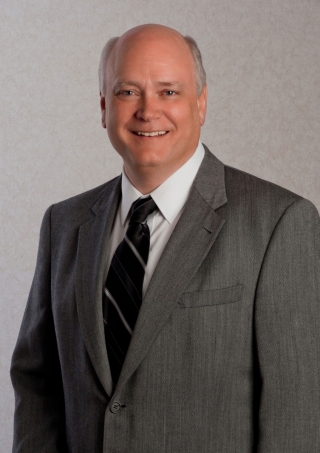
Since 2014, when WMed opened its doors to the inaugural Class of 2018, there has been one mission – to educate and inspire lifelong learners to be exceptional clinicians, leaders, educators, advocates, and researchers of tomorrow.
None of that could happen – or be accomplished – if not for the more than 700 faculty at the medical school, Dr. Hal B. Jenson, WMed’s founding dean, said recently.
“The ‘medical school’ doesn’t do anything,” Dr. Jenson said. “It’s the people at the medical school. To achieve our mission, the leaders for every component of that mission are the faculty. They are the force behind every aspect of the medical school and they are the engine of the medical school.”
“Nothing happens without their involvement.”
The number of faculty at the medical school has grown exponentially since the Michigan State University Kalamazoo Center for Medical Studies merged into WMed in July 2012. WMed now boasts almost 150 employed faculty members and more than 560 community faculty.
Dr. Jenson said faculty take on numerous responsibilities, from seeing patients to teaching medical students and residents, conducting research, and providing leadership.
“It all contributes to the success of the medical school. I think one of the goals of the medical school is to put our faculty in a position where they can be successful, where they can follow their passion and do what they want to do with their careers and their lives,” Dr. Jenson said.
The work of the faculty goes well beyond the walls of WMed, Dr. Jenson said, and extends into the Kalamazoo community, the region, and the state of Michigan.
For example, Dr. Bill Fales, associate professor for Emergency Medicine and director of the medical school’s EMS Fellowship and Division of EMS and Disaster Medicine, serves as medical director for the Michigan Department of Health and Human Services Bureau of EMS, Trauma and Preparedness.
Faculty in the department of Pathology provide medical examiner services for several counties in Michigan to support their county health departments and law enforcement, meeting the needs of the region.
And there are other faculty members, such as Dr. William Nettleton, assistant professor in the Department of Family and Community Medicine, who serves as the medical director for Kalamazoo County Health and Community Services and the Calhoun County Public Health Department.
“Sometimes the stories of the impact of our faculty are dramatic in saving patients’ lives, or sentinel moments in teaching students and residents,” Dr. Jenson said. “Most times the stories are not quite so dramatic, but are no less important. We see every day the positive impact of the dedication of our faculty to the medical school and to this community.”
Dr. Jenson said the increase in the number of faculty at the medical school has greatly benefited the medical school’s key collaborators, including Borgess Health and Bronson Healthcare.
An example of that collaboration is that WMed will soon have three ethicists – faculty from the medical school’s Program in Medical Ethics, Humanities, and Law – working regularly with the two hospitals.
“One of the characteristics that distinguishes our faculty, and even our staff, from many other jobs, or even other professions, is the sense that the practice of medicine and education is a calling, and that we view our role not in the context of a job, but as a calling,” Dr. Jenson said. “That gives us, individually, greater purpose in what we do and helps sustain us.”
In their roles as teachers for residents and medical students, Dr. Jenson said WMed faculty are critical to the medical school’s mission. He said they are role models for aspiring physicians and, in many ways and in many situations, they are the experts and the problem solvers.
“No one can be an expert in everything and that’s why we have faculty with such diverse backgrounds and abilities,” Dr. Jenson said. “Collectively, they can address any area of medicine. They are the experts in the science of medicine, they are also the experts in the art of medicine.”
With all of that in mind, Dr. Jenson said his gratitude for all that WMed faculty do at the medical school is immense and that “the faculty provide the engine for everything that the medical school does.”
“Without our faculty, the medical school doesn’t exist and doesn’t do anything,” Dr. Jenson said. “Faculty provide leadership for everything that the medical school does … and I want to say thank you for all that our faculty do.”
